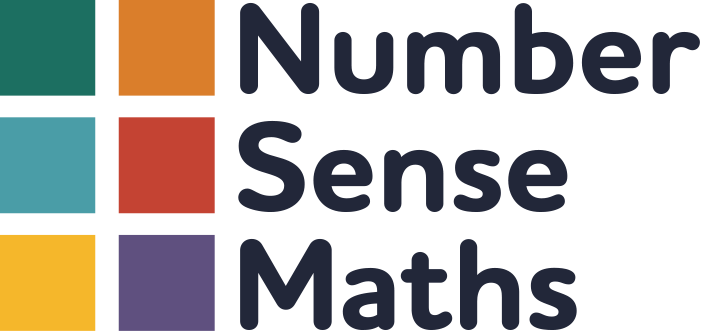At St James' Church of England School, we recognise that a high quality mathematics education provides a foundation for understanding the world, the ability to reason mathematically, and a sense of enjoyment and curiosity about the subject. It is essential to everyday life, critical to science, technology and engineering, and necessary in most forms of employment. Mathematics equips pupils with a uniquely powerful set of tools to understand and change the world. These tools include logical reasoning, problem solving skills, and the ability to think in abstract ways.
Through our Mathematics curriculum, underpinned by our school vision, mission (RACE: Respect, Aspiration, Community, Enquiring minds), we aim to enable our pupils
-
To develop a positive attitude to mathematics.
-
To develop the ability and confidence to use mathematics with fluency, flexibility and imagination though varied and frequent practice.
-
To develop conceptual understanding and the ability to recall and apply knowledge rapidly and accurately.
-
To develop the ability to use mathematics as a means of organising and interpreting and communicating information and predicting outcomes.
-
To meet and solve the practical problems (including those of everyday life) by applying their mathematics with increasing sophistication and using mathematical language.
-
To develop the ability to work in a systematic way both independently and co-operatively with perseverance.
By the end of each key stage, pupils are expected to know, apply and understand the matters, skills and process specified by the relevant early learning goal or programme of study. By the end of Key Stage 2, our end points for pupils are:
-
Pupils become fluent in the fundamentals of mathematics, including through varied and frequent practice with increasingly complex problems over time, so that pupils develop conceptual understanding and the ability to recall and apply knowledge rapidly and accurately.
-
Pupils reason mathematically by following a line of enquiry, conjecturing relationships and generalisations, and developing an argument, justification or proof using mathematical language
-
Pupils can solve problems by applying their mathematics to a variety of routine and non-routine problems with increasing sophistication, including breaking down problems into a series of simpler steps and persevering in seeking solutions.
At St. James’, Power Maths (supported with other publications and resources) are used to help deliver this curriculum entitlement. All children receive mathematics teaching on a daily basis. To ensure children ‘keep up’ and achieve age-appropriate objectives, morning pre-teach sessions are timetabled. Teachers and teaching assistants plan programmes together in response to current learning and monitor the progress of pupils.

Power Maths is a resource that has been designed for UK schools based on research and extensive experience of teaching and learning around the world and here in the UK. It has been designed to support and challenge all pupils, and is built on the belief that EVERYONE can learn maths successfully.
At St. James’, Power Maths is implemented from Reception-Year 6 as a basis of our maths lesson. This is a class mastery approach, which has been recommended by the DfE. It is based upon the concrete, pictorial and abstract approach.
Every lesson is divided into sections that involve plenty of discovery, sharing, collaboration, practice and reflection. Children are encouraged to solve problems each day through the use of concrete resources, pictorial representations and abstract thinking.
At the heart of this programme is the idea that all children can achieve and be successful mathematicians with the right growth mindset. It promotes five characters, each with their own positive skillset, to inspire and motivate children.
Presentation to parents/carers
Key Vocabulary Posters
Mathematics Calculation Policies and Progression
In addition to Power Maths, children in Reception, Year 1 and Year 2 use Mastering Number resources to aid their fluency in the key number facts.
Mastering Number aims to secure firm foundations in the development of good number sense for all children from Reception through to Year 1 and Year 2. The aim over time is that children will leave KS1 with fluency in calculation and a confidence and flexibility with number. Attention will be given to key knowledge and understanding needed in Reception classes, and progression through KS1 to support success in the future.

To support the teaching of times tables, we use Number Sense Maths from year 3 upwards. It is a highly visual, research informed programme which provides the structure and depth to times tables teaching that children need to achieve fluency in essential multiplication and division facts and concepts. It is a true 'mastery' programme, designed to achieve fluency for every child without exception.
Links to maths resources to help at home.
Here is the link to White Rose Maths, which we use in school - it is linked to Power Maths. There are lots of activities in here and you can choose the appropriate level to do.
https://play.ttrockstars.com/auth/school/student (children from year 2 to year 6 have individual log ins. Ask your teacher if you don't know what yours is)
Maths postcards for families – ECMG (earlymaths.org) (ideas for activities for families with children in Nursery and Reception to do at home)
http://www.mathplayground.com/index.html
https://mathsframe.co.uk/en/resources/resource/477/Multiplication-Tables-Check
https://mathsbot.com/manipulativeMenu
There are more links for children to access from the Fun Stuff page.












